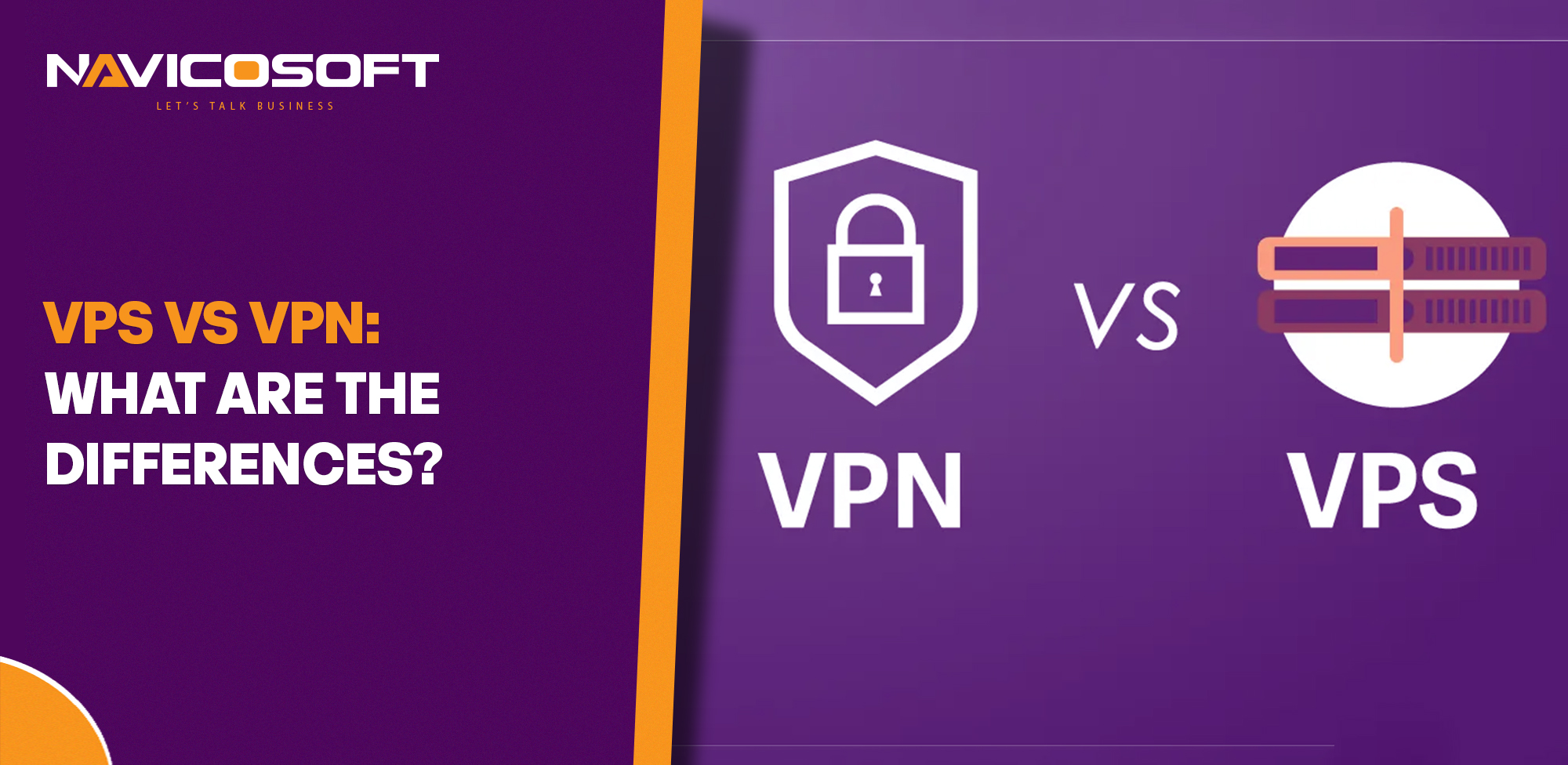Hosting services with real-time fast performance?

VPS vs VPN: What are the differences?
VPS and VPN are the most confusing words for users, especially for beginners, as they have similar sounds and a common word, virtual. However, aside from these, both terms are different in performance. Virtual private server (VPS) is a web hosting solution for those looking for website hosting services. It is a dedicated operating system that may host offline. A VPN is a tool for a secure and private internet browsing and protects users’s data from hackers. It allows the users to remain anonymous and secure their online identity while browsing. This article will help you to differentiate between VPS and VPN. A comparison of VPS vs VPN, will help you to better understand about both technologies and their working.
VPS vs VPN Comparison
What is a Virtual Private Server?
A VPS is a web hosting with a virtualized server environment. It allows users to enjoy the shared advantages of dedicated resources and shared costs. A VPS provides users with a lot of services, such as full control access, great customization, and advanced security features. Additionally, VPS allows user to host their websites, services and applications with confidence. This web hosting secures the data of the users by providing them privacy and optimize the performance of the website. The easy user interface and scalability option allow the users to scale their resources to meet the growing demand of their businesses.
VPS web hosting is a cost-effective solution for user’s needs that allows users great freedom to manage their resources on their own. Users can install and configure the software and security features on an affordable budget according to their choice.
What is Virtual Private Network (VPN)?
Often, the websites are not secured, and internet traffic can easily be tracked by a third party, although the websites provide secure connections. Internet Service providers can easily identify the user surfing a website through their IP address. The hackers may hack the user’s data and harass them via this data. So, a VPN is the ideal solution technology for users who want to hide their identity.
Unlike VPS, a Virtual Private Network (VPN) is a powerful tool for encrypting internet connections. This private network ensures secure internet traffic and identity from rival eyes through remote servers. A secure tunnel is created between the user’s device and the internet in the VPN. Additionally, VPN masks the user’s online location and activity. VPN protects the user’s data from hackers and also from cyber threats. So that users do not face any digital harassment.
Working of VPS vs VPN:
How does a VPS Work?
VPS operates using virtualization technology, which isolates dedicated virtual servers within a large physical server. Each virtual unit functions independently with its own allocated resources, such as RAM, CPU, storage, and operating systems. The hypervisor isolates the virtual servers from the physical server and also manages the resource allocation within the servers. In this way, VPS acts as a dedicated server for its users with their resources. It grants the users complete control over the server environment and enhanced security features. Users are allowed to make changes in their server without affecting the other virtual servers.
How does a VPN Work?
To use a VPN service, users will need to start VPN software. This software quickly encrypts the user’s data before it moves to the VPN server. Then, the traffic is sent to the VPN server for the user’s online destination. This destination only reads the information; consider the VPN server the source. It can’t read the computer’s location.
If you want an easy to use interface, then you will need to work a bit more. Installation of the additional software is the best solution for this. The VPN service or IT coordinators mostly offer compatible software for advanced features. You can use these services directly from the browser or install them on a private network as well. OpenVPN is the best option for a private network.
Uses of VPS vs VPN:
What are the Uses of VPS hosting?
A VPS is the best hosting server for managing websites, blogs, applications and digital content. It is used for multiple purposes, such as;
Hosting the Websites:
A VPS is the best solution for growing businesses and individuals who prefer reliable and high-performing web hosting. A VPS can handle moderate to high-traffic websites. It allows the users to manage a high level of customization. They don’t need to invest in hardware. The user can manage multiple websites with VPS hosting.
For Testing the Environments:
Developers use VPS for testing environments for better development. They can replicate production environments to allow software to run smoothly. They can perform their tests without the responsibility of maintenance and support. Because there is always an administrator system for maintenance of all such features.
Used to Run Sites and Applications:
It allows the business to run specific applications on a VPS, including CRM systems and databases. The user can easily share content. An ecommerce site or store can easily work with a secure payment system by using VPS hosting. It will run faster with dedicated resources.
Host the Gaming Servers:
Gaming communities often use VPS to host game servers, benefiting from the control, performance, and reliability. Furthermore, it provides users root access to the entire system, and gamers can easily configure the system according to their needs.
What are the Uses of VPN?
Protect Privacy:
If you have a concern about online privacy, you can prefer the usage of VPNs for safe browsing for your personal and business purposes.
Access to Streaming Content:
VPNs allow access to the streaming of services that are forbidden in their region or restricted due to any issue
Improves Security:
While working remotely in an organization, employees’ security and privacy is important. Most businesses use VPNs to protect employees’ access to the company.
Unblock Censorship:
In countries with strict internet censorship, VPNs allow citizens to access blocked websites and services.
Advantages of VPS vs VPN:
Advantages of VPS Hosting:
Offers Better Performance:
Unlike shared hosting, VPS offers dedicated resources for consistent performance by improving the overall user experience and reducing downtime. Additionally, it delivers speed, fasts page load time, enhances performance and improves responsiveness. It not only increases the website’s engagement but also provides a smooth experience to users with ultimate revenue.
Customization and Access Control:
VPS allows users complete autonomy over their server environment. They are free to customize their website and configure software to meet specific needs. Users are free to install software and manage resources to optimize performance. It increases the website’s productivity and efficiency for a successful online approach to potential audiences. This level of control makes it a favourite choice for businesses and developers without the involvement of a third party.
Cost Effectiveness and Scalability:
VPS plans are affordable and cost-effective. It makes the VPS ideal for beginner and budget-conscious businesses. VPS allows users to upgrade their resources or scale down them to meet their business goals and needs.
Advanced Security Features:
VPS environments secure users’ data with secure firewalls and regular updates. Users can check security configurations to ensure protection from cyber threats. Users are independent in setting security measures and implementing security policies for data encryption.
Advantages of VPN:
Offers End-to-end Encryption:
VPN offers end-to-end encryption for the user’s data and identity. This feature makes the information unreadable to third parties and inaccessible to hackers.
Online Privacy and Anonymity:
VPS hides the users’ IP addresses for secure online browsing. Due to this feature, it is difficult for third parties or anyone else to trace their online activity. It best protects clients’ online privacy and anonymity.
Secure Data Transmission:
VPN offers a secure and safe data transmission to the internet. Furthermore, it allows users to access data and locations that are not accessible while browsing. Additionally, VPNs provide support for many devices and protect users’ data on a single device.
Increases the speed:
VPN increases the speed of the internet. It provides great security due to advanced security protocols such as OpenVPN. A kill switch is used to disconnect the user’s connection if the VPN stops its connectivity. Furthermore, VPN allows the users to get access to blocked sites and apps in their countries. The users can enjoy unlimited internet streaming due to VPN.
A Comparison of VPS vs VPN:
Features of VPS | Features of VPN |
Host the websites and provide a secure virtual environment with dedicated resources | VPN hides the IP address and allows the users to access internet anonymously |
It is a web hosting provider | VPN offers Subscription-based service |
This web hosting server is used to host websites and apps | It is a secure networking used for private and secure online surfing Us |
It is a bit expensive than dedicated servers | It is less costly than VPS |
These servers are present in data centers | These are located everywhere and also provide no access to the systems |
These servers offer a lot of flexibility option, including scalability | They offer no scalability of resources |
Users are responsible for maintenance to some extent | VPN providers are responsible for the maintenance |
Conclusion
In comparison VPS vs VPN, although both sound the same, these are distinct technologies. VPS is a hosting solution for websites and VPN secures internet access by hiding IP addresses. They are playing important roles in the digital world for users in different ways. VPS provides great control and performance for applications and websites. On the other hand, VPNs ensure privacy and access to unavailable locations without revealing the user’s location and access. Both are playing distinct roles in the digital world. A VPS is the best tool for hosting and server management. It offers great control and performance for websites. The selection of the right server depends upon your website’s needs and goals.
FAQS.
How should I not Use a VPN?
With a lot of benefits, VPNs also have some drawbacks. It uses a large amount of data that affects the limited data plans. Most VPNs require a subscription fee, which makes it costly. Although it protects data, in actual, it increases vulnerabilities in the system.
What are the primary uses of a VPS?
VPS provides its services for hosting websites, running applications, developing and testing software, and hosting game servers. The reliable performance, scalability, and control over the server environment make its user’s favorite option for a successful online presence.
Does a VPS hide IP addresses?
VPS is a hosting web server with amazing features for improving online performance. Some VPS offer mask services, not all. So you can install a VPN to mask your IP address.













